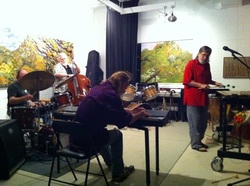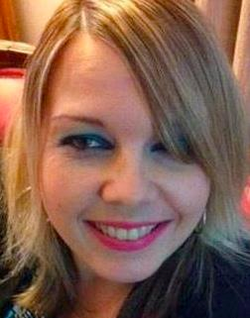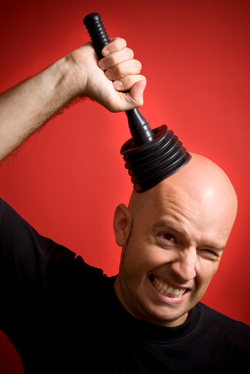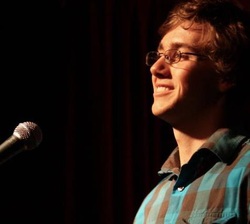
The general idea behind Poetry Night itself is to bring together as many different kinds of poets and as many different levels of ability as possible, to place them in a situation in which they can learn from each other and get to know each other. The featured poets’ readings, with their Q&A, introduces poets with proven talent and ability. The open mic, on the other hand, introduces poets of every ability. The third section, the table readings, brings them all together -- in discussion of poems read, in general conversation and in just plain good times.
The table readings solve two problems. First, with many people attending the open mic and only a limited number being picked to read (twelve at present), what happens to all the others who wanted to read but didn’t get picked? Do they have to leave disappointed? And second, how do you really create a sense of community amongst poets who sit down together to hear each other read and then just get up, file out the door, and go home?
The table readings eliminate these problems by breaking the large group into smaller ones and having poets read at all groups simultaneously, which allows everyone who brought poems to read them to an audience. And by having small, intimate groups of listeners, each one of those people can contribute to the discussion of each poem they hear. Thus the less advanced poets can learn from the more seasoned. And many viewpoints can be heard. Which, for one thing, can show poets where and why their readers will likely go astray, and how to fix the poems so this doesn’t happen so easily.
Unlike in the open mic, where the audience is simply enjoying hearing the poems, at the table readings the audience not only wants to enjoy them but also to think about those aspects that worked and those that didn’t in order to discuss them usefully afterwards. For that reason, the poems have to be read twice, the first time for the effect, and the second for the details and to help remember them for discussion.
Also, all the poets at a table should take turns reading one poem each, going around the circle until they have read all the poems they brought or Mykonos closes for the night.
As with any artist, a large part of being a poet involves things which can’t be learned or taught -- intelligence, sensitivity, empathy, creativity, life experiences, etc. But much can. And that which can, can be shared. So, hopefully, not only will the apprentice and journeymen poets read at the tables, but the master poets will as well, so that the others will be able to delve into high-quality poems alongside the poets who wrote them, for a really intense learning experience.
We learned two lessons from our first table-reading session: First, the people who take part need to know the benefits that come with small groups. Otherwise they tend to drift together into larger ones. At the first event, we didn’t discuss this with the audience beforehand, the result being that those who were by themselves or in couples tended to join the larger groups, making them even larger. Also people liked to stay with their friends and their own age groups. To get the most from the table readings, they should do just the opposite, filling out the smallest groups, and groups that are not made up of their friends and their age groups, so that they get different input for their poems than they might be used to, and also so they can involve themselves in poetry different from their norm. Most of the tables at Mykonos seat six or eight, which is probably the best size for a group. As group sizes increase, their numbers decrease, so that less poets get to read less poems. Also, as sizes increase, there is less time for everyone to contribute to the discussion, until at some point that familiar thing happens: a few dominant people take over, forcing everyone else to just sit and listen. In groups of six, that doesn’t happen. The larger a group gets, the more like a regular open mic it becomes.
The other lesson we learned was how loud people should read. Of course, if a group is large, the readers will have to read louder so everyone can hear, and they may disrupt other groups in the process. With smaller groups they don’t have to. In any case, they should always consciously modulate their voice level so it doesn’t carry into neighbouring groups. At our first event, most people did this without any discussion about it beforehand. Which was cause for relief.
These table readings have the potential to help create an actual community of poets and poetry lovers here in London. Simply, if those who keep coming to the table readings all season sit in different groups each time, then by the time the first season is over everyone will know everyone else.





 RSS Feed
RSS Feed